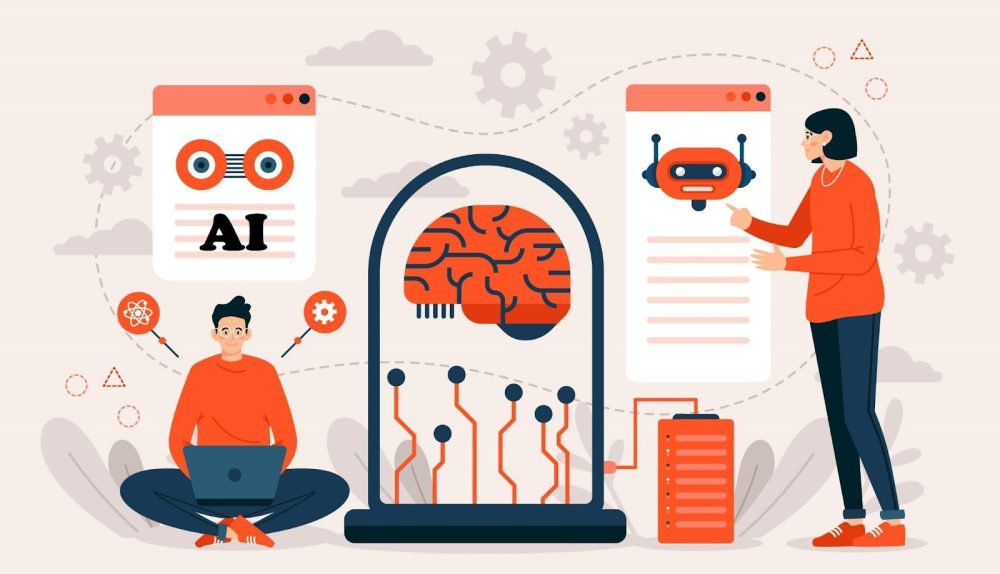Have you ever wondered why your favorite mobile apps run smoothly on countless devices? The secret lies in thorough testing,and artificial intelligence (AI) is revolutionizing this process. In this article, we’ll lean closer to the exciting world of AI-powered mobile app testing and explore how it’s changing the game for developers and users alike.
The Challenge of Mobile App Testing
A Sea of Devices and Platforms
Picture this: you’re a mobile app developer and you’ve just created what you believe is the next big thing. But before you can release it to the world you need to make sure it works flawlessly on thousands of different devices, operating systems and screen sizes. Sounds like a nightmare, right?
Time-Consuming and Error-Prone
In the past, mobile app testing services meant painstakingly testing every feature on as many devices as possible. Not only was this process time-consuming but it also fraught with human error. After all, we’re only human and it’s easy to make a mistake when QA specialists test the same thing hundreds of times.
AI The Game-Changer in Mobile App Testing
Now, imagine having a tireless, super-smart assistant that can test your app on hundreds of devices simultaneously, 24/7 without ever getting bored or missing a detail. That’s exactly what AI brings to the table in mobile app testing.
The Benefits of AI-Powered Testing
1. Speed and Efficiency
AI can run test scenarios at lightning speed, solving tasks in a few hours that would take humans days or weeks. This means faster development cycles and faster time to market for new applications and updates.
2. Comprehensive Coverage
With AI you can test your app on a vast array of virtual devices, ensuring compatibility across a wide range of hardware and software configurations. No more worrying about missing that one obscure device that a chunk of your users might have.
3. Improved Accuracy
Humans tend to make mistakes and AI doesn’t get tired, distracted or bored, so it can catch those elusive errors that elude even the most vigilant human tester.
4. Cost-Effective
The initial investment in AI testing tools may seem expensive, but it pays off in the long run. You’ll need fewer testers, and bugs can be detected earlier in the development process, saving you time and money on fixing them.
AI Testing Process
- Machine Learning — this is at the heart of testing using AI. These algorithms can analyze huge amounts of data from previous tests, user behavior, and application performance to predict likely trouble spots.
- Visual Testing — AI is able to detect visual inconsistencies that are imperceptible to the human eye. It can compare screenshots on different devices and note even the slightest inconsistencies in layout and design.
- Performance Testing — AI can simulate thousands of users interacting with an app simultaneously, this helps you identify performance bottlenecks and ensure your app can handle peak loads.
- Predictive Analytics — by analyzing patterns in user behavior and app performance, AI can predict potential issues before they even occur, which allows developers to proactively address them.
Challenges and Limitations
The Human Touch
While AI is incredibly powerful, it’s not infallible. There are still aspects of testing that require human intuition and creativity. The key is finding the right balance between AI and human testing.
The Learning Curve
Implementing AI testing tools can be challenging, especially for small development teams. Setting up the right test scenarios and interpreting results effectively requires training and time.
The Cost Factor
High-quality AI testing tools can be expensive and it’s crucial for companies to carefully evaluate the return on investment. For some smaller projects traditional testing methods might still be more cost-effective.
The Future of AI in Mobile App Testing
Continuous learning and improvement
AI algorithms continue to evolve and learn from more data. We can expect even more accurate and efficient testing in the future. Imagine AI systems that can not only detect bugs but also suggest fixes or even implement QA automatically.
Integration with development processes
We are moving towards a future in which AI testing is seamlessly integrated into the entire development lifecycle from initial coding to post-release monitoring. This leads to a faster iterative development process and higher quality applications.
Personalized user-behavior testing
AI will allow developers to create personalized test scenarios based on real users’ interactions with the app and allow them to test the most important user paths and edge cases.
Conclusion
AI is fantastically transforming mobile app testing, making it faster, efficient and more comprehensive than ever before. While challenges remain the benefits are clear: better new apps, happier users and more successful developers. As AI continues to evolve we can look forward to even more exciting innovations in the world of mobile app testing.
So, the next time when you open your favorite app and everything works fine just thank the invisible AI testers who work behind the scenes to make your experience seamless. The future of mobile app QA is here and it’s being enabled by artificial intelligence.
Check out more AI tool.
Elevate Guest Experience with RoomGenie
🚀 Check out NewsGenie – Your AI consultant
